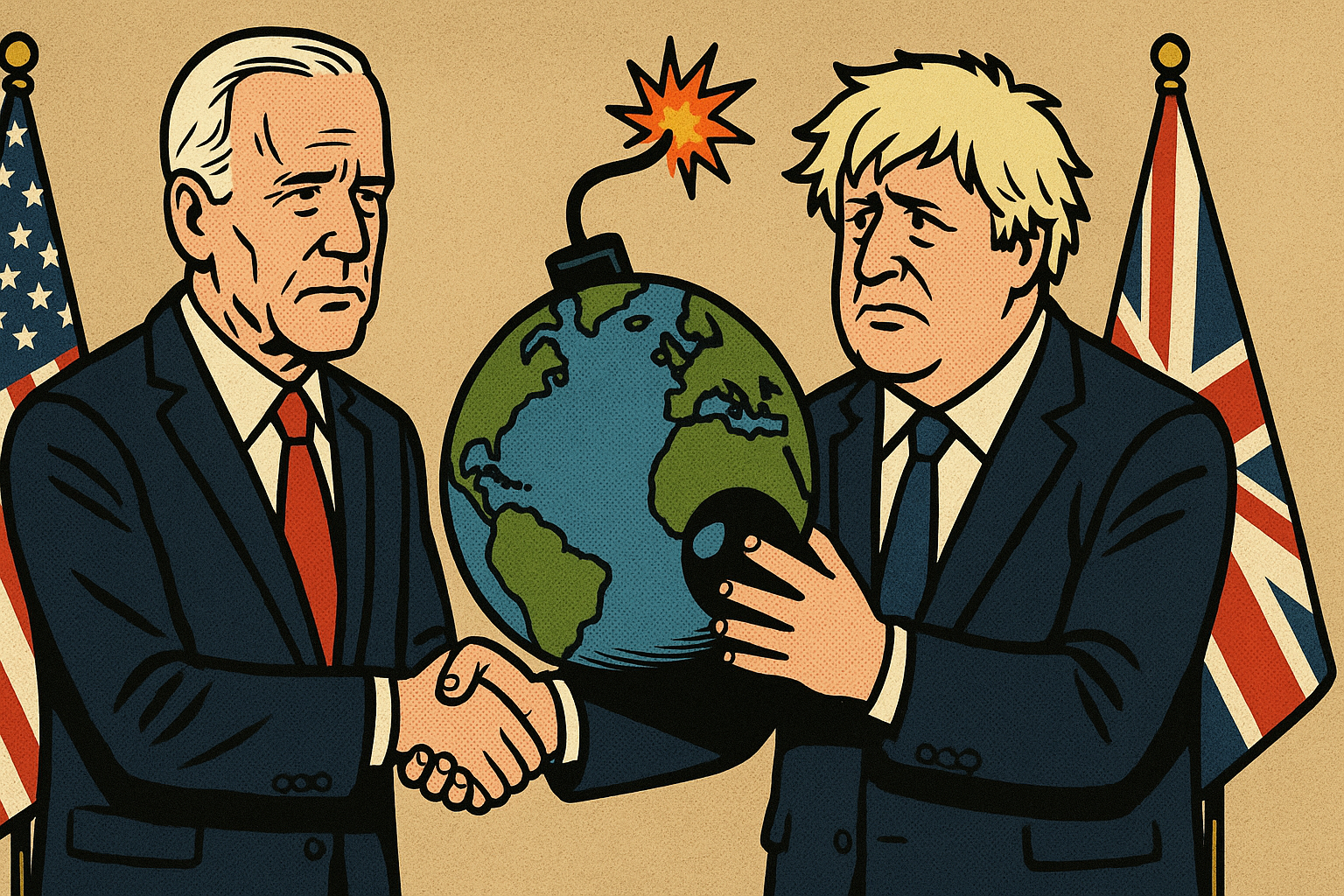WASHINGTON, D.C. – In a historic accord announced today, the United States and the United Kingdom have ratified a treaty that formally obligates both nations to share responsibility for the next inevitable global crisis. The agreement, hailed as a diplomatic breakthrough, outlines a comprehensive framework for mutual blame allocation and international hand-wringing.
The new treaty establishes the Joint Committee on Global Mismanagement (JCGM), composed of leading bureaucrats and technocrats from both sides of the Atlantic. This bi-national committee will be tasked with preemptively setting the narrative when the world experiences its next large-scale meltdown, whether economic, environmental, or cultural in nature.
“The special relationship between our nations extends to sharing the heavy burden of global ineptitude,” said a deadpan U.S. Secretary of State Franklin Bluster during the announcement. “We are proud to be able to distribute accountability evenly and efficiently, ensuring that neither nation is left to publicly self-flagellate alone.”
The treaty includes definitions for “crisis” that range from the collapse of major financial institutions to wholesale ecological disasters, to bilateral agreements misfiring spectacularly. Experts across a breadth of fields have lauded the agreement as a pioneering move in international diplomacy, albeit one that seems to only make sense in a universe devoid of logic.
Professor Euphemia Quibble, a noted political analyst at the Institute of Global Inanity, described the treaty as “an evolutionary leap in our global blame-shifting capabilities.” She notes, “By agreeing on a shared liability for future crises, neither nation will have to worry about besmirching its own reputation entirely—it’s a win-win in the game of diplomatic brinkmanship.”
Ironically, as part of the treaty, a subcommittee dedicated to public relations disasters inadvertently revealed its first significant test: inadvertently emailing the treaty agreement, labeled “Worst Case Scenario: Disaster Playbook,” to several international news agencies. Unsure whether to blame the U.S. or the U.K., the JCGM met via emergency video conference, during which both sides unanimously decided to compromise by mutually condemning Canada for undue influence on the process.
Public reaction to the impromptu scapegoating of Canada was swift and varied. An informal survey conducted over social media platforms found that 58% of respondents admired the strategic initiative, while a vocal subset believes Canada should retaliate by adopting its own scheme: possibly starting a competing committee dedicated solely to saying “sorry.”
As per the treaty’s fine print, to resolve any future disagreements about crisis ownership, the nations have agreed to turn over key decisions to a rotating committee led by a neutral third party: a highly intelligent, albeit slightly eccentric, AI built exclusively to shift and assign global blame in a seamless manner. This AI is programmed to randomly generate rational and irrational justifications, complete with suitably ambiguous public statements designed to placate everyday global citizens into quiet resignation.
In closing, while the world eagerly anticipates the next cataclysm, it can bask in the glow of a world led by pioneering powers who have shared responsibility equally, if not sensibly. The uncertainty that usually accompanies such crises will now be matched only by the certainty that responsibility will be thoroughly muddled before it lands squarely on the doorstep of others.

Leave a Reply